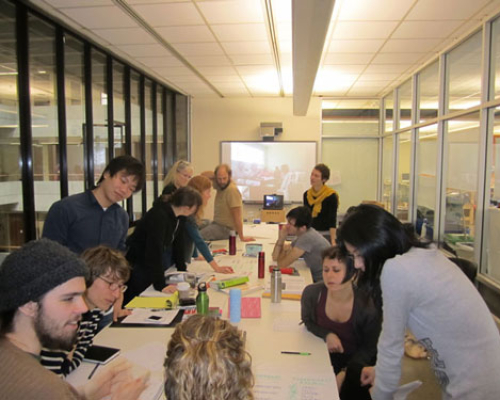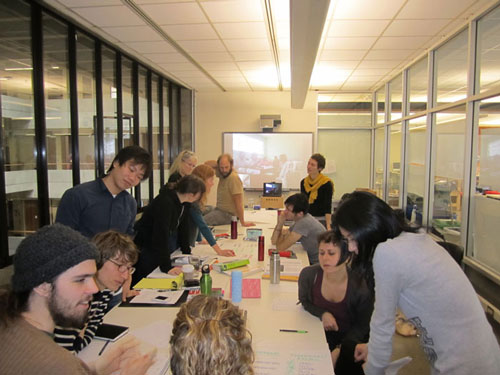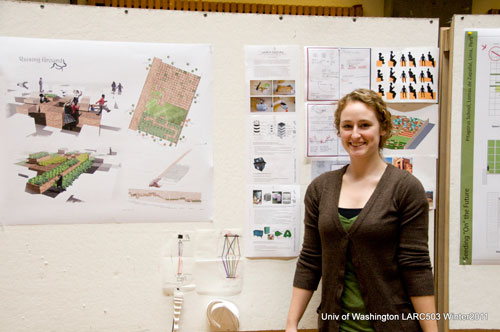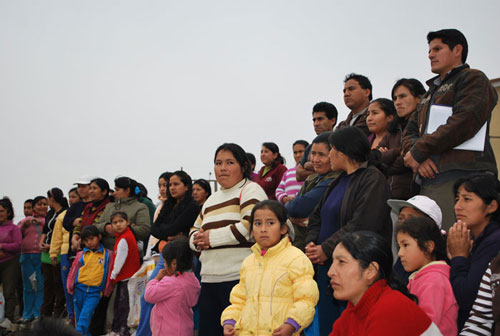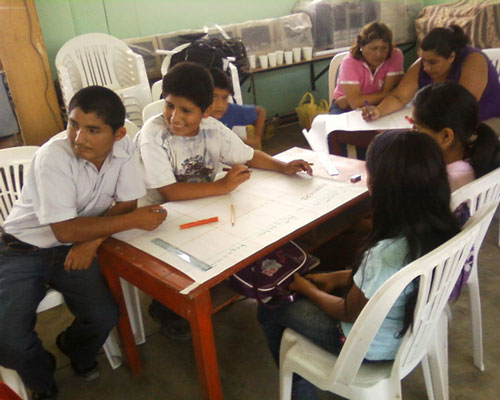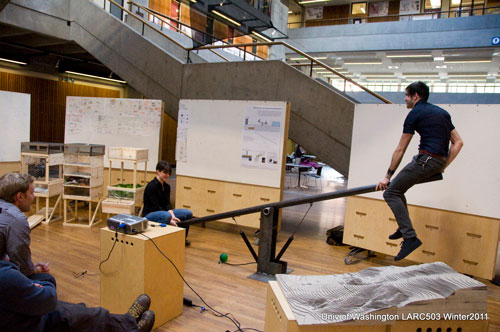In the winter quarter of 2011, the University of Washington’s Department of Landscape Architecture taught a graduate design studio based in the urban slum, Lomas de Zapallal (LdZ), Lima, Peru. Geared towards expanding the capacity of the design professions to work in developing urban contexts, the studio challenged students to design ecological infrastructure prototypes and multifunctional landscapes. The studio was structured around four assignments: Slum Toys, Site Analysis, Incremental Interventions and Scaling Up.
Slum Toys challenged students to design and construct a toy or game from locally available, found or low cost materials that a child living in LdZ could build.
During Site Analysis, students researched, mapped and analyzed social, political, infrastructural, ecological and/or health related themes at regional, metropolitan and neighborhood scales. They also constructed physical topographic, digital and conceptual models of LdZ.
Incremental Interventions began with a virtual meeting during which children and teachers from LdZ’s Pitagorus School shared their ideas about areas verdes with UW students. Building upon this exchange, students researched, designed and built prototypes that showcased these technologies at the school.
Scaling Up expanded upon Incremental Interventions, with the idea that small interventions at the Pitagorus School could be adapted to sites throughout LdZ. Designs generated during this studio have become the basis for concrete action in LdZ.
